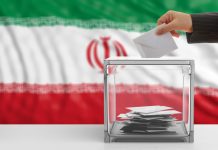By Vita Arumsari and Yunice Karina Tumewang
For a country like Indonesia that has the largest Muslim population in the world, Islamic banking is moving in slow progress – with only less than 6% contribution on the country’s total national banking asset and only 8% of the total population knowledgeable on the Sharia-compliant financing. Yet, Indonesia still poses a great potential on boosting the Islamic banking sector, the authors argue.
Indonesia, the largest target market for Islamic finance with more than 200 million Muslim citizens, is struggling so hard to be placed at the 10th rank, left behind by the neighbouring country Malaysia which leads the Global Islamic Economy Indicator for the fifth year in a row (Reuters, 2017). As witnessed today, the development of Islamic banking as the core sector of Islamic finance is still far from satisfying the expectation. According to Financial Service Authority (OJK, 2017), the total asset of Islamic banking is only around IDR 400 trillion or equal to 5.18% of national banking asset. In line with that, the market share of Islamic banking is merely 5.78% of the national banking. Whereas on the total fund collected from society, Islamic banking is only able to acquire IDR 341 trillion compared to the total society fund in national banking which is not less than IDR 5,289 trillion. On the side of distributing fund to society, the number is quite the same, IDR 291.18 trillion from Islamic banking compared to IDR 4,782 trillion from total national banking.
The under-performance of Islamic banking might be due to the limited product diversification offered, the low level of differentiation of Islamic banking from its counterpart, and the low literacy level of Islamic banking among society.
According to Head of Commissioner Board of Indonesia Deposit Insurance Corporation (LPS) Halim Alamsyah, one of the factors hindering the acceleration of Islamic banking is that they merely focus on the role as an ordinary intermediary function, rather than maximising their potential role as an investment or social agent. Hence, it made no difference with the conventional one. They, supposedly, can do better if they are more willing to manage the social funds for investment on real-sector activities, which is highly Sharia-compliant and socially-impactful.
Taking a closer look at the contracts of Islamic banking, more than 50% of total transactions are using murabahah agreement, which vulnerably becomes ribawi if continuously run in a long-term. Obviously, fatwa shopping becomes an issue in this case, as it is hard to find an appropriate rule of conduct for this dominant transaction. Most Sharia Advisory Board sitting in multiple banks and other professionalism issues is largely considered as the root cause of this problem. Moreover, until now, Islamic banking is still not allowed by our regulation to have inventory in their business for keeping the commodity to be sold. Hence, it is very hard for Islamic banking to fully manage the risk according to Sharia as well as to comprehensively agree with PSAK 102 as the accounting standard for murabahah transaction.
Based on the survey conducted by OJK (2017), it reveals that literacy of Islamic finance in Indonesia only reached 8.11%, which means that among 100 people, there are only 8 people who have knowledge about the Sharia-compliant finance. While the inclusion level of society taking financing benefit from the Islamic finance sector is only 11.06%, which means that there are only 11 out of 100 people who make financial transaction in a Sharia-compliant sector.
Overcoming the problems mentioned above, tackling fatwa shopping should be done as the priority and systematically. Firstly, by standard legalisation – once the decision is made, there is no bargaining process even to the other Ulama. Secondly, there should be transparency from the SSB to the society. This covers the reason behind the issued permit. In other words, we let society keep an eye on the Islamic financial institutions. Thirdly, audit compliance should be stated similar to the financial audit where they should be featured in the financial report for the sake of transparency. Banks should have minimum procedure or characteristics that should be implemented. Lastly, beyond the minimum procedures, they can innovate much as they like to attract customers as long as they do not cross the borders.
Expanding the products variety not limited to murabahah is urgently needed. Product application other than murabahah might be costly in terms of human resources and operational cost. But, we should emphasise that profit and loss sharing are the unique characteristics of Islamic products that cannot be left behind. Based on this fact, banks apply this principle only for the ‘giant’ customers. On the other hand, for retail financing customers, it is more practical, theoretically and practically to decide the margin without supervising the amount of income they generated. If banks find it too hard, why don’t we create an Islamic financial institution (IFI) to cater to the need of profit and loss sharing principles? If in the end, Islamic financial institutions and banks feel overwhelmed, why don’t we implement IFIs using social funds to see first if it is worth the risk?
Finally, socialising in the grassroots level is vastly needed. The question is, how to make it feasible for educating hundred millions of Indonesians? Educating regional leaders who will then educate its people is inevitably crucial. This kind of system is similar to multilevel marketing where each leader needs to look for a group of people to be educated. Involving the society to the Islamic Financial Institutions is also important. By doing so, they can understand better what is going on inside the IFIs. But one thing should be understood, the government should be aware that once the society has comprehensive knowledge about IFIs, they would require pure products. If the government cannot provide this, it can trigger a movement towards Islamic finance institutions. To cater to this, the government should ensure, particularly OJK, to educate DPS to be more selective and strict about the feasibility of the products based on the Islamic financial principle.
All in all, Islamic finance is more than willing to create a fully Sharia-compliant system. However, no matter how great the system and intention are, it is impossible without gaining trust, support, and cooperation from the society. Furthermore, Indonesia as the largest country with Muslim population ideally should be able to cater to the need of the citizens to practise Islam as a whole (kaffah). By doing this, it will not be impossible for Indonesia to be the hub of Islamic finance in 2030. With two-way collaboration between the government in voicing Islamic finance as the new alternative of banking and the society as the main player, we could turn around the vicious cycle into virtues of Islamic banking.
About the Authors
 Vita Arumsari, S.ST., M.Sc. is a lecturer at Politeknik Negeri Semarang. She is a graduate of Islamic Finance in Durham University, UK.
Vita Arumsari, S.ST., M.Sc. is a lecturer at Politeknik Negeri Semarang. She is a graduate of Islamic Finance in Durham University, UK.
 Yunice Karina Tumewang, S.E., M.Sc. is a lecturer at the Accounting Department, Universitas Islam Indonesia
Yunice Karina Tumewang, S.E., M.Sc. is a lecturer at the Accounting Department, Universitas Islam Indonesia



































































